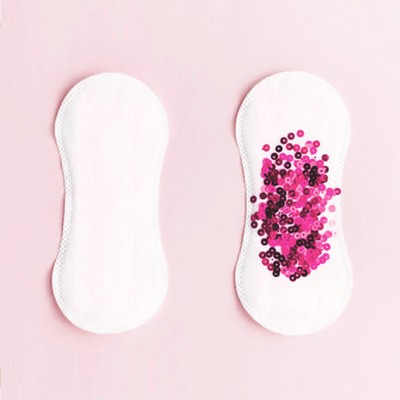
How To Delay Your Period For Your Wedding Day
Is it common for brides to want to delay their period?
Many brides want to try to delay their period due to the inconvenience of having to deal with it on their wedding day. Women often worry about not having enough sanitary items to hand, as well as whether they’ll be able to change them while wearing a wedding dress. Also, there is the issue of leakage, which is clearly less than ideal when you’re dressed in all white. Plus, there are monthly symptoms related to periods such as migraines or PMS (premenstrual syndrome in the days before your period) that brides may wish to avoid.
Is it safe to do this?
It is not harmful to delay your period for a one-off occasion.
What are the different options?
There are two methods to delay your period: the combined contraceptive pill and norethisterone (the period delay pill).
What are the advantages of going on the contraceptive pill?
The contraceptive pill is a good option to delay your period and is also useful for managing symptoms like PMS. As there are so many different options available, it’s recommended you start it at least three to six months before your wedding to see how it suits you. Some women may experience side effects such as breast tenderness or changes in mood and may need to switch to another pill. It also has the added advantage of being a contraceptive.
Is it possible to skip a period on the contraceptive pill?
With the combined contraceptive pill, you take it for 21 days and then have a break period for seven days, during which time you have what is called a withdrawal bleed. To delay your period, simply take two packets back-to-back so there is no hormone-free interval and therefore no period. It is recommended to take a full two packets rather than just partially start the second one.
If you take pill packets back-to-back, does this mean your next period will be heavier?
Going back-to-back with the combined pill does not mean that your next period will be heavier. The period following the delay pill is likely to be heavier, however.
Is it guaranteed to be a spot-free day on the contraceptive pill?
Spotting is most common in the first three months of starting any type of pill and will of course be related to how consistently you take it. However, generally speaking, you are more likely to get spotting with the mini pill over the combined pill, as it's a continuous dosage without a monthly break.
When it comes to choosing a contraceptive pill, are some better than others?
Combined pills contain different types of progestogens, each of which have different benefits. Those containing cyproterone acetate (for example Dianette), are particularly good at reducing acne. It is worth discussing with your doctor if you have any symptoms that you particularly want to address with the contraceptive pill.
Let’s talk more about the period delay pill. What is it exactly?
If you are not currently taking the contraceptive pill or not looking for anything long-term, then delaying your period with norethisterone is an option. This is a progesterone-only pill that you need to start three to four days before your period is due and take three times a day for up to 14 days. Once you stop taking this pill, you should have a period in the next few days. Importantly, it does not act as a contraceptive and you will still need to use other methods such as condoms while on this pill.
How do you access it?
Both the contraceptive pill and the period delay pill are prescription only and you will need to see your GP, gynaecologist or visit a family planning clinic in order to get them. Both options carry some risks, which will need to be individually assessed for the bride-to-be. The contraceptive pill is not usually recommended for women who have a high blood pressure, are overweight, or aged 40 plus. Norethisterone may not be suitable for those with a history of blood clots, either.
Can you fly if you have taken it?
If you are heading off on honeymoon at some stage, both options are safe for flying. Both have a small, increased risk of deep vein thrombosis, but this is still a very low risk overall. For flights under four hours, you are likely to be fine. For anything long haul, stay hydrated, move regularly during the flight and consider using some compression stockings.
Can women take the period delay pill if they have PCOS, endometriosis and other conditions?
The period delay pill is safe for women with PCOS. In fact, it's often used to try and induce a period if these women haven’t had one in at least four months. It's also safe for women with endometriosis, however, a longer-term hormonal contraceptive would be better at controlling the pain symptoms associated with this condition.
Are there any other side effects?
You may experience side effects with either option, including breast tenderness, nausea, headache or disturbances in mood or sex drive. Side effects are likely to subside over time with the contraceptive pill but may be felt more acutely with the period delay pill. If you are concerned how the side effects of the period delay pill may affect you on your big day, then you can try it in advance. However, try to do this about three to six months before your wedding to let any side effects subside and give your menstrual cycle time to regulate again.
Dr Tara Hughes is an obstetrics and gynaecology registrar working and training in the North West London deanery.
DISCLAIMER: We endeavour to always credit the correct original source of every image we use. If you think a credit may be incorrect, please contact us at info@sheerluxe.com.